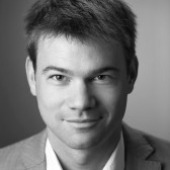John Aylward, Celestial Forms and Stories; Klangforum Wien;
New Focus Recordings, February, 2022; 54 minutes; $10.00 +
The Structure
The five-movement work in concert music is as old as music itself and John Aylward's new recording, Celestial Forms and Stories, containing five separate and distinct sections conforms, in its structure, to the works of Mozart and Beethoven. It is written for chamber ensemble rather than full orchestra, however. Inspired by the stories contained in Ovid's Metamorphosis the pieces were written over a period of six years (2014-2019); they are: Daedelus, Mercury, Ephemera, Narcisus, and Ananke. Composer John Aylward seems to struggle with melody, employing the form but fighting all the way. He manages to give live musicians playing traditional instruments an almost electronic sound through his tricky and sometimes difficult harmonies. Fortunately, he has the excellent musicians of the Klangforum Wien under the direction of Finnegan Downie Dear to play this score.

The album cover.
Composer and Pieces
John Aylward lives and works in Northampton, Massachusetts. Born in 1980 he has enjoyed many successes; this is his second recording of new works. He teaches and concertizes as a pianist. Part of the joy in listening to this recording comes from the content of the five sections, especially from the third movement, Ephemera, the Scherzo section, a joke really, Featuring two members of the ensemble, bass clarinetist Olivier Vivares and cellist Andreas Lindenbaum, the music vibrates from giggle to gag and back again over nearly nine minutes. Melody intrudes periodically in Aylward's best fashion, but it never pauses or relents. Thís is typical of the work but is never as clear, clean and obvious anywhere else. In addition to those two musicians the Klangforum Wien consist of Vera Fischer (flute), Markus Deuter (oboe), Bernhard Zachhuber (clarinet), Sophie Schafleitner (violin), Dimitrios Polisoidis (Viola), and Bjorn Wilker (percussion). This isn't music you'll play in the background of other activities. It requires listening to and it is better on repeat hearings than it is at first hearing. The fifth section, Ananke, is the closest to lyrical as this work ever gets, however and its extended length of fifteen minutes is well justified.

John Aylward, composer